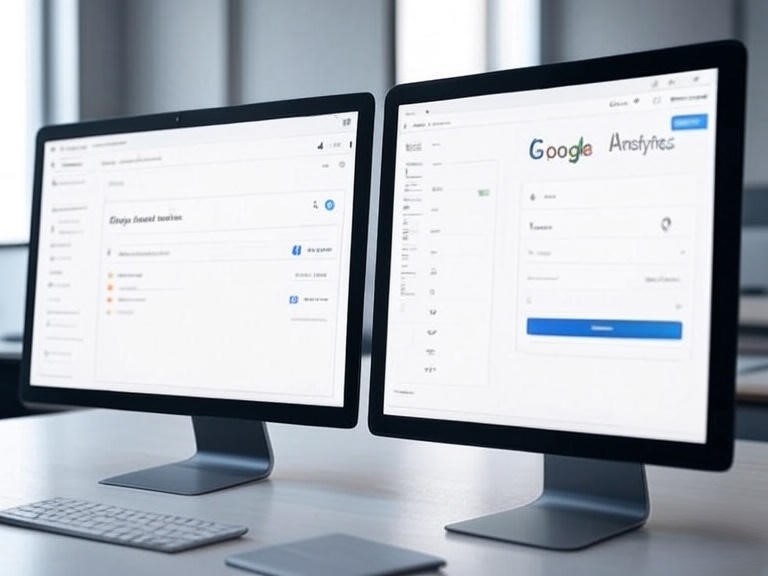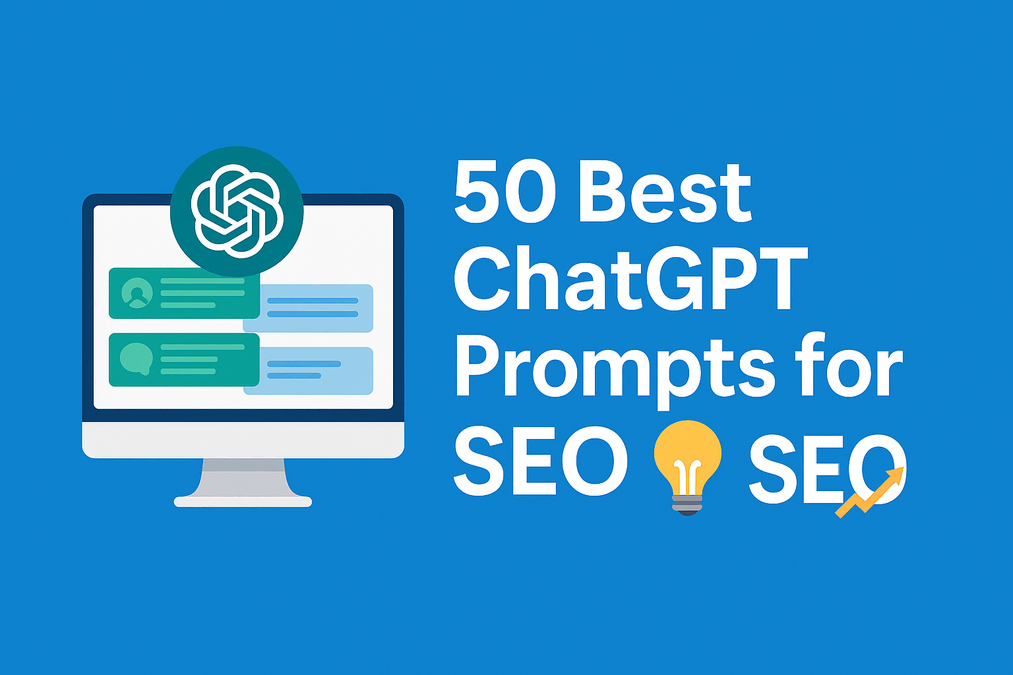
Table of Contents
Introduction
Search Engine Optimization (SEO) can feel like a maze, but it doesn’t have to be! Imagine having a super-smart assistant who can help you find the right keywords, create awesome content, and boost your website’s ranking on Google—all with a few clever instructions. That’s where ChatGPT prompts for SEO come in. These prompts are like magic spells for your website, helping you create content that grabs attention and climbs search engine results pages (SERPs). In this article, we’ll share 50 of the best SEO prompts for ChatGPT to make your site shine, along with mobile-friendly tables and charts to guide you. Whether you’re a blogger, small business owner, or marketer in the USA, these SEO prompt ideas are written for an 8th-grade reading level to keep things simple and fun. Let’s dive in!
Why Use ChatGPT for SEO?
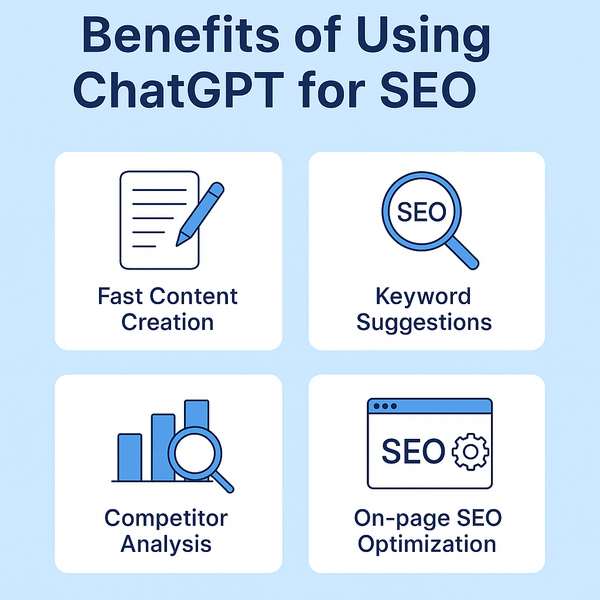
ChatGPT, created by OpenAI, is an AI tool that can understand and generate human-like text. It’s like having a brainstorming buddy who’s available 24/7. For SEO, ChatGPT can help with tasks like finding keywords, writing blog posts, creating meta descriptions, and even analyzing competitors. Using AI SEO tools like ChatGPT saves time and makes your content more appealing to both readers and search engines.
Here’s why ChatGPT SEO content is a game-changer:
- Saves Time: Generate ideas, outlines, or full drafts in minutes.
- Boosts Creativity: Get fresh SEO prompt ideas to stand out.
- Improves Rankings: Craft content that aligns with what Google loves.
- Easy to Use: You don’t need to be a tech wizard to get started.
Before we jump into the prompts, let’s set the stage with some tips to make your prompts work like a charm.
How to Craft the Perfect ChatGPT Prompt for SEO
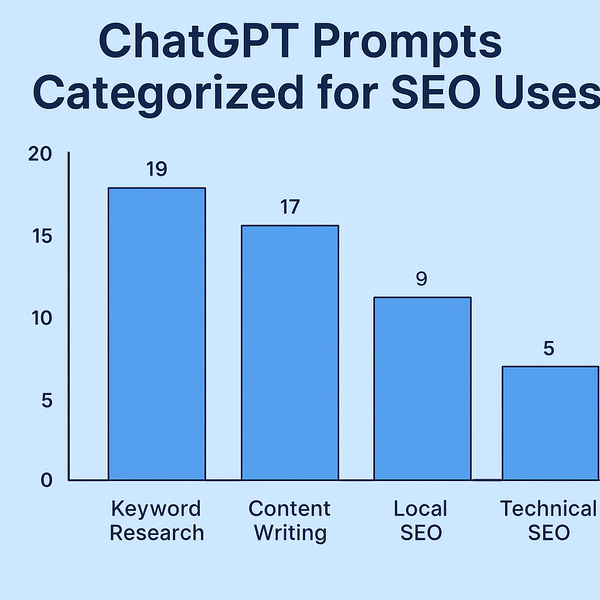
A good prompt is clear, specific, and tells ChatGPT exactly what you want. Think of it like giving directions to a friend. Here’s how to make your prompts awesome:
- Be Clear: Say exactly what you need, like “Suggest 10 keywords for dog training.”
- Add Details: Include your audience, tone, or word count, e.g., “Write a 500-word blog post for pet owners.”
- Specify Format: Ask for a list, table, or outline to keep things organized.
- Use Examples: Show ChatGPT what you want by giving sample outputs.
- Iterate: If the result isn’t perfect, tweak your prompt and try again.
Now, let’s explore the 50 best ChatGPT prompts for SEO, split into categories to cover every part of your SEO strategy. Each section includes a mobile-responsive table to make the prompts easy to read on any device.
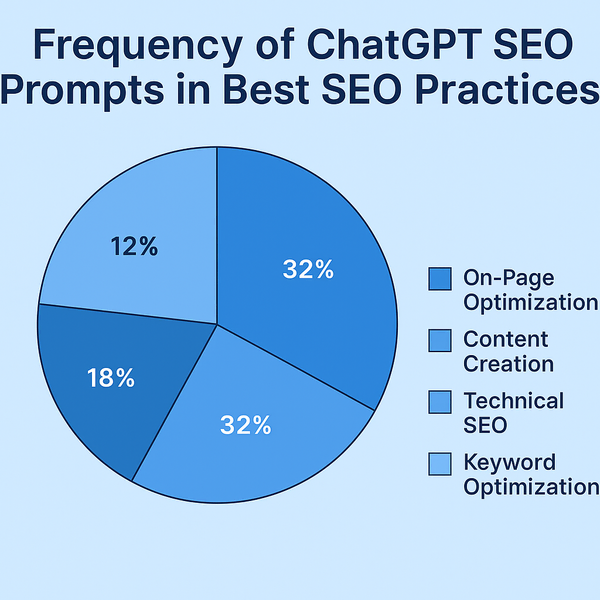
1. Keyword Research Prompts (Prompts 1–10)
Keyword research is the foundation of SEO. It’s like picking the right bait to catch fish—you need to know what your audience is searching for. These SEO prompt ideas help you find seed keywords, long-tail keywords, and search intent to target the right audience in the USA.
Prompts for Keyword Research:
| Prompt Number | ChatGPT Prompt | Purpose | Example Output |
|---|---|---|---|
| 1 | “List 10 seed keywords for [your niche] that are relevant to a USA audience.” | Find broad keywords to start your research. | For pet care: “dog training, pet grooming, cat food” |
| 2 | “Suggest 15 long-tail keywords for [seed keyword] with low competition and high search intent.” | Discover specific, less competitive keywords. | For dog training: “how to train a puppy at home” |
| 3 | “Analyze the search intent for [keyword] and suggest 5 related keywords.” | Understand why people search and find related terms. | For “dog training”: Informational intent, related: “puppy obedience tips” |
| 4 | “Generate 10 question-based keywords for [topic].” | Target FAQ-style content for voice search. | For fitness: “What are the best home workouts?” |
| 5 | “Create a table of 10 keywords for [topic] with columns for search volume, difficulty, and intent.” | Organize keywords with key metrics. | Table with keywords, e.g., “yoga for beginners,” volume: 5,000, low difficulty, informational |
| 6 | “List 5 LSI keywords related to [primary keyword].” | Find related terms to boost content relevance. | For “SEO tools”: “keyword planner, backlink checker” |
| 7 | “Identify 5 high-volume, low-difficulty keywords for [niche].” | Find keywords that are easy to rank for. | For travel: “budget travel tips USA” |
| 8 | “Suggest 10 keywords for [product/service] in [location].” | Target local SEO for USA cities. | For coffee shops in Seattle: “best Seattle coffee shops” |
| 9 | “Group 15 keywords into clusters based on topic relevance.” | Organize keywords for content planning. | Clusters like “dog training methods” and “dog behavior tips” |
| 10 | “Find 5 keywords my competitors rank for but I don’t for [topic].” | Identify content gaps. | For pet blogs: “dog crate training tips” |
Chart: Keyword Research Process
Why It Works: These prompts help you uncover keywords that match what your USA audience is searching for. For example, prompt #8 is great for local businesses like coffee shops or gyms. To learn more about tracking your keyword performance, check out our post on Google Search Console vs Google Analytics: Your Ultimate Guide for Website Success.
2. Content Creation Prompts (Prompts 11–20)
Creating ChatGPT SEO content is like baking a cake—you need the right ingredients (keywords) and a recipe (structure) to make it delicious. These prompts help you write blog posts, outlines, and engaging intros that hook readers.
Prompts for Content Creation:
| Prompt Number | ChatGPT Prompt | Purpose | Example Output |
|---|---|---|---|
| 11 | “Write a 1,500-word blog post on [topic] optimized for [keyword].” | Create a full SEO-friendly article. | Blog on “best hiking trails USA” with keyword focus. |
| 12 | “Create an SEO-optimized blog outline for [topic] with H1, H2, H3 tags.” | Structure content for readability and SEO. | Outline with headings like “Why Hiking is Great” |
| 13 | “Write a 150-word intro for a blog post on [topic] using [keyword].” | Craft an engaging, keyword-rich intro. | Intro for “ChatGPT prompts for SEO” hooking readers. |
| 14 | “Generate 5 blog post titles for [keyword] targeting [audience].” | Create catchy, SEO-friendly titles. | Titles like “Top SEO Tips for Beginners in 2025” |
| 15 | “Write a 500-word section on [subtopic] with [keyword] naturally included.” | Add depth to specific sections. | Section on “benefits of AI SEO tools” |
| 16 | “Suggest 3 internal links for a blog post on [topic] from [sitemap].” | Boost SEO with relevant internal links. | Links to related posts on your site. |
| 17 | “Create a 100-word summary of [blog post] for social media.” | Repurpose content for platforms like Twitter. | Tweet-sized summary for “SEO strategies 2025” |
| 18 | “Write a listicle of 10 tips for [topic] with [keyword].” | Create engaging, scannable content. | “10 Ways to Use ChatGPT for SEO Success” |
| 19 | “Generate a FAQ section with 5 questions for [topic] using [keywords].” | Target long-tail keywords and voice search. | FAQs like “How do AI SEO tools help rankings?” |
| 20 | “Rewrite [paragraph] to include [keyword] and improve readability.” | Optimize existing content. | Rewritten paragraph with “ChatGPT prompts for SEO” |
Why It Works: These prompts make content creation faster and ensure your posts are optimized for Google. For example, prompt #16 helps you link to other posts, like our guide on Unleashing the Power of Google’s Free SEO Tools for Better Website Performance, to keep readers on your site longer.
3. On-Page SEO Prompts (Prompts 21–30)
On-page SEO is about making your website pages super-friendly for search engines. These best SEO prompts for ChatGPT focus on optimizing titles, meta descriptions, and other elements to boost rankings.
Prompts for On-Page SEO:
| Prompt Number | ChatGPT Prompt | Purpose | Example Output |
|---|---|---|---|
| 21 | “Write a meta description for [title] using [keyword], under 160 characters.” | Create clickable meta descriptions. | “Boost rankings with ChatGPT prompts for SEO! Learn 50 tips now!” |
| 22 | “Generate an HTML title tag for [topic] with [keyword], under 60 characters.” | Optimize title tags for SERPs. | <title>ChatGPT Prompts for SEO Success</title> |
| 23 | “Suggest 5 H2 subheadings for [topic] with [keyword].” | Structure content with SEO-friendly headers. | Subheadings like “Why Use AI SEO Tools?” |
| 24 | “Optimize [paragraph] for [keyword] and keep it under 100 words.” | Improve keyword density naturally. | Paragraph with “SEO prompt ideas” integrated. |
| 25 | “Create a robots.txt file to block [directory] from crawlers.” | Control search engine crawling. | Disallow: /private/ |
| 26 | “Write schema markup for [page type] with [keyword].” | Add structured data for rich snippets. | JSON-LD for a blog post on “AI SEO tools” |
| 27 | “Suggest 3 alt texts for images in a post about [topic].” | Optimize images for SEO. | Alt text: “ChatGPT SEO content creation guide” |
| 28 | “Generate hreflang tags for [languages/regions].” | Support multilingual SEO. | <link rel="alternate" hreflang="en-us" href="..."> |
| 29 | “Review [page] for E-E-A-T improvements using [keyword].” | Enhance content credibility. | Suggestions for expertise and authority. |
| 30 | “Write a call-to-action for [topic] with [keyword].” | Drive user engagement. | “Try these ChatGPT prompts for SEO today!” |
Why It Works: On-page SEO prompts ensure your content is technically sound and user-friendly. For example, prompt #29 aligns with Google’s focus on Expertise, Authoritativeness, and Trustworthiness (E-E-A-T). To protect your site from harmful tactics, read our post on Negative SEO: A Complete Guide to Myths, Threats, and Protection Strategies.
4. Technical SEO Prompts (Prompts 31–40)
Technical SEO keeps your website running smoothly so search engines can crawl and index it easily. These prompts help with code, site speed, and more.
Prompts for Technical SEO:
| Prompt Number | ChatGPT Prompt | Purpose | Example Output |
|---|---|---|---|
| 31 | “Generate a sitemap.xml for a website with [pages].” | Help search engines find your pages. | XML sitemap with URLs listed. |
| 32 | “Suggest 5 ways to improve site speed for [website].” | Boost loading times for better UX. | Tips like “compress images, use CDN” |
| 33 | “Write a .htaccess file for 301 redirects from [old URL] to [new URL].” | Redirect old pages to new ones. | Redirect 301 /old /new |
| 34 | “Identify 5 common technical SEO issues for [website type].” | Spot problems to fix. | Issues like “broken links, slow load times” |
| 35 | “Create a mobile-friendly HTML snippet for [element].” | Ensure mobile responsiveness. | Responsive table code for keywords. |
| 36 | “Generate a report on [website]’s technical SEO health.” | Assess site performance. | Report on crawl errors, speed, etc. |
| 37 | “Suggest fixes for [specific technical issue] on [website].” | Solve specific problems. | Fix for “404 errors on blog pages” |
| 38 | “Write a canonical tag for [page] to avoid duplicate content.” | Prevent duplicate content penalties. | <link rel="canonical" href="..."> |
| 39 | “Check [URL] for broken links and suggest fixes.” | Improve user experience. | List of broken links with redirects. |
| 40 | “Create a JSON-LD schema for [event/product].” | Enhance SERP visibility. | Schema for “2025 SEO conference” |
Chart: Technical SEO Priorities
Why It Works: Technical SEO prompts keep your site in top shape. For example, prompt #32 can improve user experience, which Google rewards. Pair these with tools like Google Search Console, as explained in Google Search Console vs Google Analytics: Your Ultimate Guide for Website Success.
5. Link Building and Off-Page SEO Prompts (Prompts 41–50)
Link building is like getting votes of confidence from other websites. These prompts help you create outreach emails, find backlink opportunities, and boost your site’s authority.
Prompts for Link Building:
| Prompt Number | ChatGPT Prompt | Purpose | Example Output |
|---|---|---|---|
| 41 | “Write an outreach email for link building for [blog post] in [tone].” | Secure backlinks from other sites. | Email in friendly tone to a blogger. |
| 42 | “Suggest 5 guest post topics for [niche] with [keyword].” | Pitch guest posts to build links. | Topics like “AI SEO tools for beginners” |
| 43 | “Create a 2-sentence outreach email for [free offer] with [keyword].” | Short, curiosity-driven emails. | Email offering a free SEO guide. |
| 44 | “List 10 websites for guest posting in [niche].” | Find link-building opportunities. | List of blogs accepting guest posts. |
| 45 | “Analyze [competitor]’s backlink profile and suggest 5 link opportunities.” | Steal competitor strategies. | Sites linking to competitors but not you. |
| 46 | “Write a press release for [event/product] with [keyword].” | Gain media backlinks. | Press release for “SEO tool launch” |
| 47 | “Suggest 3 social media posts to promote [blog post] with [keyword].” | Drive traffic and backlinks. | Posts for “ChatGPT prompts for SEO” |
| 48 | “Create a backlink strategy for [website] in [niche].” | Plan long-term link building. | Strategy with guest posts, forums, etc. |
| 49 | “Write a LinkedIn article on [topic] with [keyword].” | Boost authority and links. | Article on “using AI SEO tools” |
| 50 | “Suggest 5 influencer outreach ideas for [product/service].” | Partner with influencers for links. | Ideas like “SEO tool review by bloggers” |
Why It Works: These prompts help you build authority and protect against tactics like Negative SEO: A Complete Guide to Myths, Threats, and Protection Strategies. For example, prompt #41 crafts emails that get responses, increasing your chances of earning backlinks.
Tips to Maximize Your ChatGPT SEO Results
To get the most out of these ChatGPT prompts for SEO, follow these tips:
- Combine with Tools: Use Google Search Console or Ahrefs to verify keyword data, as ChatGPT doesn’t have real-time stats. Learn more in Unleashing the Power of Google’s Free SEO Tools for Better Website Performance.
- Edit for Quality: Always review AI content to add your unique voice and ensure accuracy.
- Target Your Audience: Tailor prompts to the USA market by specifying location or audience preferences.
- Test and Tweak: If a prompt’s output isn’t perfect, adjust it with more details or a different format.
Common Mistakes to Avoid
Even with the best SEO prompts for ChatGPT, mistakes can happen. Here’s what to watch out for:
- Overstuffing Keywords: Don’t cram ChatGPT prompts for SEO into every sentence—it looks unnatural.
- Skipping Verification: Always check ChatGPT’s suggestions with tools like Semrush or Google Analytics.
- Ignoring E-E-A-T: Make sure your content shows expertise, authority, and trust.
- Neglecting Mobile: Ensure tables, charts, and content are mobile-friendly, as shown in our examples.
Conclusion: Take Your SEO to the Next Level
Using ChatGPT prompts for SEO is like having a superpower for your website. These 50 prompts cover keyword research, content creation, on-page SEO, technical SEO, and link building, giving you a complete toolkit to dominate Google’s SERPs in 2025. By combining AI SEO tools with human creativity, you can create ChatGPT SEO content that’s engaging, optimized, and tailored for your USA audience. Start experimenting with these SEO prompt ideas today, and don’t forget to check out our other posts like Google Search Console vs Google Analytics: Your Ultimate Guide for Website Success and Negative SEO: A Complete Guide to Myths, Threats, and Protection Strategies for more tips. Ready to boost your rankings? Try these prompts and watch your site soar!
Pick 3 prompts from this list and try them today. Share your results in the comments or reach out for more SEO prompt ideas!
Key Takeaways: 50 Best ChatGPT Prompts for SEO
Here are the most important points from our post on ChatGPT prompts for SEO, summarized for quick reference. These takeaways are tailored for our USA audience and written at an 8th-grade reading level to make them clear and actionable.
- ChatGPT Boosts SEO Efficiency: Using ChatGPT prompts for SEO saves time by generating keyword ideas, blog posts, meta descriptions, and technical fixes, helping your website rank higher on Google.
- 50 Prompts Cover All SEO Needs: The 50 best SEO prompts for ChatGPT are divided into five categories—keyword research, content creation, on-page SEO, technical SEO, and link building—to tackle every part of your SEO strategy.
- Keyword Research Made Easy: Prompts like “Suggest 15 long-tail keywords for [seed keyword]” (Prompt #2) help you find low-competition terms to target your USA audience, but verify data with tools like Google Keyword Planner.
- Create Engaging Content Fast: Use prompts like “Write a 1,500-word blog post on [topic]” (Prompt #11) to produce ChatGPT SEO content that’s optimized and reader-friendly, with outlines and catchy titles.
- Optimize On-Page Elements: Prompts for meta descriptions, title tags, and image alt texts (e.g., Prompt #21) ensure your pages are search-engine-friendly and improve click-through rates.
- Fix Technical Issues: Technical SEO prompts, such as “Suggest 5 ways to improve site speed” (Prompt #32), help make your site faster and easier for Google to crawl, boosting user experience.
- Build Authority with Links: Link-building prompts like “Write an outreach email for link building” (Prompt #41) help you earn backlinks, increasing your site’s credibility. Learn more in our Negative SEO: A Complete Guide to Myths, Threats, and Protection Strategies.
- Combine AI with Human Touch: Edit ChatGPT’s output to add your unique voice and check accuracy with AI SEO tools like Google Search Console, as explained in Google Search Console vs Google Analytics: Your Ultimate Guide for Website Success.
- Mobile-Friendly Tools Included: The post’s tables and charts are responsive, making it easy to use SEO prompt ideas on any device, ensuring you can work on SEO anywhere.
- Avoid Common Pitfalls: Don’t overstuff keywords or skip E-E-A-T (Expertise, Authoritativeness, Trustworthiness). Use prompts strategically to create high-quality content that Google and readers love.
Ready to start? Pick a few ChatGPT prompts for SEO from the post and try them today to skyrocket your website’s rankings in 2025!
Disclaimer: This post may contain affiliate links to the Hostinger Affiliate Program. If you make a purchase through these links, we may earn a commission at no additional cost to you. All opinions and recommendations about ChatGPT prompts for SEO are our own, based on research and experience, to provide you with honest and helpful information.
💬 Frequently Asked Questions
Explore common questions about ChatGPT prompts for SEO to supercharge your SEO efforts with ease.
They are questions or instructions given to ChatGPT to assist with SEO tasks like keyword research, content writing, and optimization.
They help generate outlines, titles, intros, and full articles that are optimized for search engines.
Yes. Beginners can use these prompts to get keyword ideas, meta descriptions, and SEO-friendly content without expert skills.
Prompts that ask for long-tail keywords, search intent classification, and trending queries work best for keyword research.
Yes. You can instruct ChatGPT to create catchy, keyword-rich meta descriptions within character limits.
Absolutely. Prompts can be used to generate city-specific keywords, location pages, and Google Business descriptions.
You can use prompts to create outreach emails, guest post ideas, and backlink suggestions with anchor texts.
Yes. You can automate tasks like content briefs, keyword clustering, and content planning with specific prompts.
Yes, the content generated is responsive. Just make sure your theme and structure are mobile-optimized.
Use categories like keyword research, meta content, and backlinks. Store them in a spreadsheet or Notion template.

📩 Let’s Connect!
Need help with your WordPress site? Want to collaborate or ask a question?
👉 Contact Me
👉 Or email me directly: contact@wordpressgurupro.com
Thanks for visiting — let’s build something amazing together! Hope you enjoy my article,"10 Best Free WordPress Themes for Blogs in 2025"
While you’re here, don’t forget to explore our top resources:

